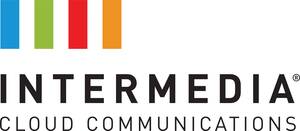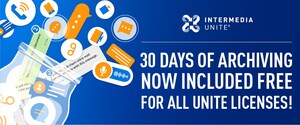InterMedia Unveils Groundbreaking Report On North Koreans' Growing Access To Foreign Media And Information Sources
WASHINGTON, May 10, 2012 /PRNewswire-USNewswire/ -- Global research and consulting group InterMedia (www.intermedia.org) unveiled a new report today showing that North Koreans can access far more news and information from abroad than commonly assumed, posing a challenge to the state's control over what its citizens see, hear, know - and believe.
While there is no indication that new North Korean leader Kim Jong Un plans to loosen official state control of media and information, the reach of unsanctioned foreign content is expanding nonetheless and providing alternatives to domestic propaganda messages.
The report, "A Quiet Opening: North Koreans in a Changing Media Environment," is being unveiled at an event on Thursday, May 10, at the Reserve Officers Club in Washington, D.C. (for more information on the event and the event webcast, click here).
Robert Coonrod, InterMedia CEO, stated: "We are delighted to bring this significant piece of research to those in the U.S. government and in the international community who are focused on human rights. The changes in North Korea's information environment documented in this report suggest a potential long-term trajectory for change, which is very encouraging."
"A Quiet Opening" draws from the most recent results of a decade-long research program among refugees, travelers and defectors from North Korea. Some of the major findings include:
- A substantial portion of the North Korean population has access to outside media, notably through international TV, international radio, and most prevalently, foreign DVDs. Mobile phones able to receive foreign signals are playing a smaller role.
- There is a strong link between foreign media exposure and positive perceptions of the outside world, implying that the influx of foreign media contributes to a more aware North Korean citizenry.
- Parallel to increased foreign media access is an increased willingness by North Koreans to share information with others they trust, creating an information multiplier effect.
- Sharing of illegal foreign content is a key factor in strengthening horizontal bonds and information sharing between North Korean citizens, breaking the state's top-down monopoly on the supply of information and ideas.
Below are selected verbatim comments from North Koreans included in the report:
"[Accessing foreign media] didn't change my life, but it changed how I analyzed my life."
-39-year-old male from Hyesan City who left North Korea in April 2010
"I was told when I was young that South Koreans are very poor, but the South Korean dramas proved that just isn't the case."
-31-year-old male from Hyesan who left North Korea in January 2010
"I think now, almost all citizens listen or watch. You can tell when you talk to them ... they will use [South] Korean words. In North Korea there is no such phrase as "no doubt." When they use a word like that, you think, 'that person watches [foreign media] too.'"
– 45-year-old female from Hamkyongnamdo who left North Korea in May 2010
Contact the report's principal author:
Nat Kretchun, Associate Director, InterMedia
[email protected]
tel. 1-202-434-9306
About InterMedia
InterMedia (www.intermedia.org) is a consulting group with expertise in applied research and evaluation. We help clients understand, inform and engage people worldwide – especially in challenging environments. InterMedia's offices are located in Washington, D.C., London and Nairobi, complemented by a global network of research partnerships.
For more information about InterMedia, contact us at: [email protected].
SOURCE InterMedia
WANT YOUR COMPANY'S NEWS FEATURED ON PRNEWSWIRE.COM?
Newsrooms &
Influencers
Digital Media
Outlets
Journalists
Opted In






Share this article